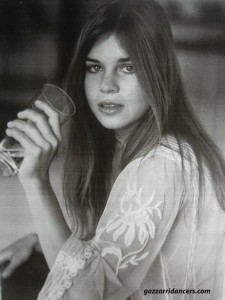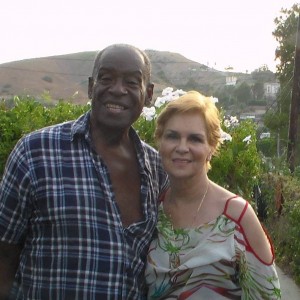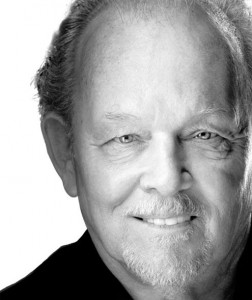 I’ve lived my life in several improbable incarnations. My memoir, Things We Lost in the Night, A Memoir of Love and Music in the 60s with Stark Naked and the Car Thieves, tells about my years in music as a singer/musician/performer and a bit about where I was raised in Indianapolis, Indiana. After those six years contained in two books, NIGHT PEOPLE, which is being released on June 15 and ENCHANTED, due out early in 2016, I roamed Hollywood as a personal manager, record producer, and Sunset Boulevard recording studio owner. During my Hollywood years, I also wrote a music magazine column for a Southern California Lifestyle magazine and authored and drew a published music-based cartoon strip named Frets.
I’ve lived my life in several improbable incarnations. My memoir, Things We Lost in the Night, A Memoir of Love and Music in the 60s with Stark Naked and the Car Thieves, tells about my years in music as a singer/musician/performer and a bit about where I was raised in Indianapolis, Indiana. After those six years contained in two books, NIGHT PEOPLE, which is being released on June 15 and ENCHANTED, due out early in 2016, I roamed Hollywood as a personal manager, record producer, and Sunset Boulevard recording studio owner. During my Hollywood years, I also wrote a music magazine column for a Southern California Lifestyle magazine and authored and drew a published music-based cartoon strip named Frets.
In the early Eighties, determined to find my way out of the music business, I conceived a crazy idea centered around my love for games, computers, a technology I was just discovering, and a suggestion from a friend involved in the rapid growth of cable television. Once written up as a proposal, the concept of led me on an amazing journey of developing the first digital broadcasting network on cable television. Though that company, The Games Network, went public and was very nearly successful, it was a bit ahead of its time. However, in the process, I earned my ‘street MBA’ and ‘on-the-job’ technical degrees in networking and software development. Though I spent a few years in independent video and film production, I returned to technical endeavors as a consultant, earning my professional writing bones as a pencil-for-hire technical and training writer for Fortune 50 companies. Over the years, I’d taken some of the game concepts from my cable television experience to design my own role-playing strategy multi-player game and learned enough to begin developing it while working for Hallmark’s Odyssey Channel. While a critical success, I was unable to turn it into a commercial one and returned to technical consulting until I was able to take on full-time creative writing. I married a girl I originally met when she was in a software training class I taught, and we now live in Southern California, quietly marinating in the sun. She is my muse.
What inspired you to become an author?
Many things, but first and foremost, reading. No matter what else I was doing in life from the earliest age that I could hold a book, I was always reading. I make a distinction between being a writer and being an author. I found I could accomplish a lot with writing, and it was what helped me in my role as CEO of a cable television company and then when I turned to full-time freelance technical writing. Designing my own game, Imperial Wars required tons of technical writing. I did make two or three real attempts to become an author, one of them while I was still playing the band that’s featured in Things We Lost in the Night. But I recognized early on that while I learned a lot about organizing the material I was going to write and the reality of deadlines that were very useful, there is an entirely different skill set necessary to write creative fiction: to become an author. But I have always believed there would come a time when I could give my full attention to learning those skills. I hadn’t really realized how much time it was actually going to take me until I took on this project.
What author influenced you the most?
In a general sense, far too many to mention. In the specific sense of my current book, there were ones who helped me understand memoir as a genre. It’s a form of creative non-fiction, bounded by the author’s memory. While it is based in truth, it is the author’s truth. I learned that I would need to use the tools of a novelist to reflect the memories that I’d shared with my band brothers and to bring out the compelling story throughline as I experienced it so it would be intelligible to readers. At first, I didn’t even know I was writing a memoir. I thought I was just relating some of the amazing adventures of a band in a crucial time of social change in our country’s history. But I came to understand that no matter how interesting I thought our adventures were, there were probably few readers who would understand them unless they could feel my emotions and see the story through my eyes. I needed models for how to do that. I believe that three authors showed me the way for different reasons, so I hope I can be pardoned for picking more than one.
1. Cheryl Strayed – Wild. While I was discovering what memoir, as a genre, was about, I looked for other books in this field. Personally, I hadn’t read a lot of memoirs, and those I had I didn’t really care for. This author brought frank personal honesty to her writing, informing me of how I would have to reveal myself if I wanted my readers to feel how the events I experienced affected and changed me. She also demonstrated how powerful narration and exposition can be in a memoir.
2. Kaui Hart Hemmings – The Descendants. Most people probably remember the movie starring George Clooney, but it was an amazing and wonderful book first. And it’s fiction. However, after reading a lot of memoir, I realized that fiction, written as memoir, is a great teacher as well. This writer’s sharp insightful looks at human interaction made me catch my breath. Her description of a man caught in a web of emotions while his wife is in a life-threatening coma, finding that she’s been unfaithful, dealing with his pre-adolescent and teenage daughters with their own emotional responses, and his ongoing important professional responsibilities would have just been sad in the hands of a less skilled writer. Instead, she finds the lightness and humor in the life-in-death center of this story. As a part of my book deals with my own crisis and personal loss, I hope to somehow emulate her magical touch. But it’s probably beyond my reach.
3. Kiana Davenport – The House of Many Gods. The crisis I mentioned above revolves around Hawaii. I don’t want to get into the story itself, but there were crucial things that happened that I couldn’t understand when I began both books of this memoir, even after more than 45 years. Kiana gave me insight into the Hawaiian spirit, its strengths and weaknesses. Beyond that specifically, her authorial heart is worn on her sleeve as she writes. I can only describe her writing as ferocious and compelling. While I love Kaui’s light touch, I don’t want to lose sight of, or fear expressing strong emotions.
Do you have a favorite author? (Or name a few)
I would like to consider the three authors mentioned above as joining my favorite authors even though I’ve discovered them in the course of my own work, and I would add Mary Karr, who wrote Liar’s Club to the list. However, I have authors dating back to my science-fiction years who I’ve always loved and influenced me in earlier projects, including Isaac Asimov and his Foundation Trilogy, James Blish’s Cities in Flight novels, Alfred Bester, the author of my favorite science fiction book, The Stars My Destination, Gregory Benford and the Galactic Center novels, and Neal Stephenson’s Snow Crash. Although, in mystery, I love to read Michael Connelly and Robert Crais, I love Dennis Lehane’s early novels and feel the impact of his style the most.
What is the best writing advice you have ever received?
Organize. Know where you’re going. And write every day without fail. My current project is very large, since it actually contains both books written as one large story. But I’ve tried to follow the standard that there needs to be every word necessary to tell the story, and not a word more—or less. I probably don’t meet that standard exactly, but I aspire to it, and I’ve never had a reader tell me that NIGHT PEOPLE, this first book, feels too long. Taking on a project of this magnitude, I felt I needed to thoroughly understand my story arc. There are certain threads and themes that work their way through the entire six years. To do this, I built calendars and a long chart of months covering the years of Things We Lost in the Night. Then I overlaid it with the documented events I’d spent months collecting to use as milestones. When I could see where they landed, I added my remembrances, running as much of them as I could past my bandmates and friends who’d experienced parts of it. I connected the dots through the main characters and their story arcs. By making choices about what would be in the book, since not everything can, I was able to pull out certain points and flesh them out to reveal how our story moved and its emotional impacts. It was amazing how much I was learning about myself and my friends from this view. Deconstructing from there came chapters, scenes, and what needed to be in them. Once I had sections and chapters, I could approach the work in reasonable chunks of writing. I can’t say I came to this approach all at once, but I experimented until I found this path. I was guided by many years of technical writing where research and planning were necessary to deliver a cogent document.
What helps you write when you’re stuck or have writer’s block?
Another value of coming from a background of professional writing is that there is no such excuse as writer’s block. You can’t tell a client you can’t finish his specification or training curriculum because you have writer’s block. So I haven’t experienced it very much. In those moments where I’m not sure exactly what to do, I refer back to my diagrams and reexamine what’s going on, look for the connections between events and the characters, and find the character motivations or connecting events I’d forgotten or missed. We’re human beings, there is an emotional logic that goes into how we move through life. I’ve found this always works since I know the story. What I don’t understand are writers who tell me they let their characters take over their story and how that causes writer’s block when they try to figure out what comes next. I think an author’s job regarding characters is similar to that of a movie director—you can give them their head a bit as long as they stick to the storyline. That doesn’t mean your characters can’t grow or develop, but it’s your job as the author/director to make sure the overall story gets told.
Memoir has prepared me to write long-form because I believe I would immerse myself in a fictional story I wanted to write, to the point that I would feel as though it had actually happened in my author persona. The main difference is, in memoir, since you’re dealing with a whole memory over years, you have to find what must be removed to reveal the story, whereas in fiction, it takes accretion to build a story. But once you know it, if you’re blocked, it’s because there’s something mechanical going wrong in the story that you need to find by backing up to check out your big picture.
What are you working on currently?
ENCHANTED, the concluding book of the memoir. Fortunately, I wrote Things We Lost in the Night as a single story. I decided I was going to have to divide it into two books at a natural point in the storyline. It turned out to be exactly halfway in terms of time and, amazingly enough, a change in tone as well. While the first book is about the band struggling to survive and grow and me trying to figure out my personal life, in the second book, the band has achieved a comfortably high level of success, though not producing the hit records we wanted so desperately to achieve. I’ve finally discovered personal happiness and dare to tweak the ears of fate in an attempt to find a way to overcome the band’s greatest hurdle. The crisis in the band comes from struggling with our inability to ascend to that final rung of national prominence and, more importantly, from the security we’ve achieved. Our differences are separating us, rather than binding us together as they did when were traveling. The feeling that everything is perfect in my personal life turns in an instant into a quagmire of despair and a hurricane of emotions that threatens my sanity. Can I save either my band, or my family, or both—or neither?
When you’re not writing, what do you like to do?
It’s so embarrassing. When I’m not reading, I love to read, and I like to go to movies on weekday mornings when no one’s around. I’m at my computer every single day. It’s such a habit to write that I cannot face a day without it. Thank goodness my wife gets me out of the house for walks with our Chili Dog and to broadening events of various kinds. We live in a college town, and there are always presentations of some kind available. Sometimes, we get to Los Angeles for various musical events, too.
What are some of your most favorite books of all time?
I’ve probably mentioned them above, but for science fiction, it’s easy. The Stars My Destination. It should be a movie. Every once in a while, I think I’d like to do a movie treatment for it. I’ve seen it’s been optioned but never made. Can’t understand it. I also mentioned Snow Crash, a phenomenal book about an internet we still may see with the advent of virtual reality bringing the digital world closer and closer to interacting with the real world. It’s something I’m very interested in; my online game had a similar concept of part of the game being played in a game space while another part played in the wider meta-game of the real world.
For inspiration, I can always look to Richard Bach’s Illusions of A Reluctant Messiah, and Steven Pressfield’s Do The Work.
I love Dennis Lehane’s A Drink Before the War, and his other earlier books. I am in awe of Kiana Davenport’s The House of Many Gods, and Kaui Hart Hemmings, The Descendants.
Is there anything specific you’d like to try writing about in the future?
I can hardly wait to finish the memoir. I had some choices when I chose which to write, and I’m more than ready to pick one of those or maybe something entirely new. I had no idea this book would take five years and counting.
During the years I spent developing Imperial Wars, my graphical online multiplayer strategy game, I developed a backstory of a galactic empire on the brink of destruction. I’ve already divided that up into a trilogy and written a few chapters when I took a forced break after the memoir’s first draft.
I have been developing a present-day character that I’d like to write about. He is essentially an outlaw, dishonorably discharged from the army where he was a Ranger. He stands accused of a brutal act that he can barely remember in Afghanistan and struggles with bouts of mental illness. He takes odd jobs as an off-the-grid, off-the-book private investigator and squats in a rundown boat in a down-at-the-heels marina in Long Beach, California. I have an interesting idea for a first case that I’ve been discussing with an author friend of mine that deals with retribution, the death penalty, the murder of an elderly woman by a child, and a conspiracy.
Someone close to me suggested a series of fictional, based loosely on fact, sequels to this memoir. It makes me wonder …
Which of your characters do you love the most and why?
With the understanding that characters in a memoir are real people, they are still characters; it’s impossible to capture a whole human being in a billion words. So, as I’m always willing to admit, as soon as I put someone down on paper, they cease being flesh and blood but are reduced to a few lines of description, dialog, and action. With that said, I had to most fun writing about certain individuals we met, like our informal ‘pharmacist’ introduced in The Pharmacist and the Nurse chapter. The attorney who managed to snatch me from induction into the army is a wonderful character in The Prophet and the Lawyer chapter, along with the standup comic-in-waiting, moonlighting as a bartender. A girl I only knew as Kathy is a big favorite in Two Bricks and a Hundred Dollar Bill. Don’t want to leave out Eddie Pru, a mobster/entertainer who trained us in stagecraft, and his amazing girlfriend Torchie, in Torchie and the Pru, or Larry Lamb, the youngest brother of the Sheriff of Clark County, Las Vegas who allegedly filled Caesars Palace’s fountains with soap powder, who you’ll meet in Bonnie Springs Ranch. I love them all for their quirkiness.
Which one of your books are you most proud of?
NIGHT PEOPLE, since it’s my first full book. I’m proud of it because I feel as though I’ve captured the essence of each of the main characters and the band’s experience. I’m happy that the themes have come through without being overly obvious, but there, if you look for them, and that there is a complexity of real life about the books without the confusion of real life. I think there is a deceptive depth of layers to the story that allows re-reading. I know that most readers won’t notice the symbolism or threads, but I believe, subliminally, these things bring a feeling of depth to a book. On the other hand, I cannot look at this book without wanting to re-write parts of it—just one more time, please!
What is an interesting or hidden talent you have?
Patterns, though I’m not sure it’s a talent, it’s at least an attribute. I tend to see the world in a series of patterns, tendencies, and possibilities, rather than static in time.
Is there anything else you’d like my readers to know?
That I believe we are all a story, and that I’m immortal in the sense of relative time, and that I believe everyone else is too. Our stories coincide if we experience our relative times in a way that intersects with one another, but we always live in our own bubble of existence. We come into this world alone, live in it that way no matter how close we grow to others, and we leave it the same way. And that the universe is far, far, far more complex than we can ever know or give it credit for, and that we are way bigger than our stories in the here and now.
Where can we find you on social media?
You can find my book at Amazon at: www.amazon.com/NIGHT-PEOPLE-Book-Things-Thieves-ebook/dp/B00VL8L0VI/ref=asap_bc?ie=UTF8
My author website, including my blog, is: larryjdunlap.com
My author Facebook page is facebook.com/larryjdunlap.author
My Amazon author page is: amazon.com/author/larryjdunlap
My Goodreads author page is: https://www.goodreads.com/larryjdunlap
My twitter account is: @LarryJDunlap
My Instagram account is: www.instagram/larryinla
My Pinterest account is: www.pintrist.com/larryjdunlap
Whew!
(Posted from Sophia’s blog @ http://sophiatallon.blogspot.com/2015/06/author-interview-larry-dunlap.html?m=1)




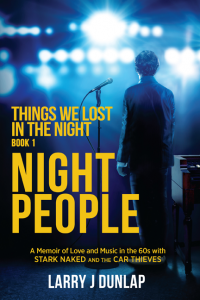
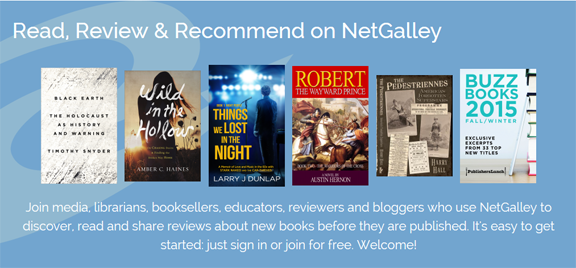 I’m pretty excited to see that NetGalley has featured NIGHT PEOPLE, Things We Lost in the Night on their main page. Hope that augers well for the book’s future.
I’m pretty excited to see that NetGalley has featured NIGHT PEOPLE, Things We Lost in the Night on their main page. Hope that augers well for the book’s future.
 I’ve lived my life in several improbable incarnations. My memoir, Things We Lost in the Night, A Memoir of Love and Music in the 60s with Stark Naked and the Car Thieves, tells about my years in music as a singer/musician/performer and a bit about where I was raised in Indianapolis, Indiana. After those six years contained in two books, NIGHT PEOPLE, which is being released on June 15 and ENCHANTED, due out early in 2016, I roamed Hollywood as a personal manager, record producer, and Sunset Boulevard recording studio owner. During my Hollywood years, I also wrote a music magazine column for a Southern California Lifestyle magazine and authored and drew a published music-based cartoon strip named Frets.
I’ve lived my life in several improbable incarnations. My memoir, Things We Lost in the Night, A Memoir of Love and Music in the 60s with Stark Naked and the Car Thieves, tells about my years in music as a singer/musician/performer and a bit about where I was raised in Indianapolis, Indiana. After those six years contained in two books, NIGHT PEOPLE, which is being released on June 15 and ENCHANTED, due out early in 2016, I roamed Hollywood as a personal manager, record producer, and Sunset Boulevard recording studio owner. During my Hollywood years, I also wrote a music magazine column for a Southern California Lifestyle magazine and authored and drew a published music-based cartoon strip named Frets.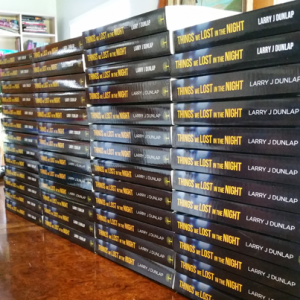 FRIENDS AND FAMILY PRE-ORDER SALE FOR KINDLE BOOK – $2.99
FRIENDS AND FAMILY PRE-ORDER SALE FOR KINDLE BOOK – $2.99
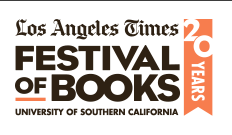
 “She’s Beautiful When She’s Angry” Mary Dore’s documentary of The Women’s Movement
“She’s Beautiful When She’s Angry” Mary Dore’s documentary of The Women’s Movement